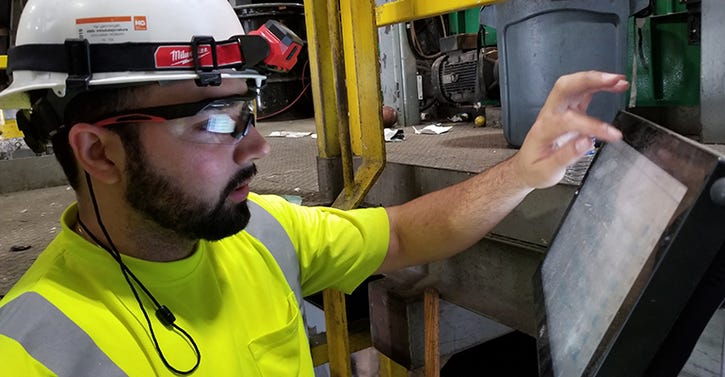Recology Introduces Artificial Intelligence to Recycle Central
Four robotic sorting machines at the facility identify different plastics, remove them from conveyor belts of mixed materials and deposit them for further sorting.

China, formerly the world’s largest buyer of recyclable paper and plastics, no longer imports recycled materials. Global recycling facilities now demand improved sorting practices and reject bales of materials containing greater than one percent impurities.
In the face of these realities, some U.S. cities have pulled back from recycling. San Francisco, however, is meeting the challenge head on and continues to lead North America in the recovery of recyclable materials.
Recycle Central, the 200,000-square-foot materials recovery facility operated by Recology, is the backbone of San Francisco’s recycling system, according to Recology. Over the past four years, Recology has invested more than $20 million into the facility, installing state-of-the-art recycling equipment, including new machines that have wider conveyor belts, run at higher speeds and help keep material like single-use plastic out of finished bales of mixed paper.
To produce even cleaner bales, Recology recently introduced artificial intelligence to Recycle Central. Four robotic sorting machines are learning to identify different types of plastics, remove them from conveyor belts of mixed materials at rapid speed and deposit them into appropriate categories for further sorting.

“The magic of Recycle Central continues to be people utilizing the latest technology to recycle more materials while producing high-quality bales of sorted recyclables,” according to Recology. “This new technology cannot replace human judgment. The robotic sorting machines at Recycle Central will be used to perform some of the dirtier jobs, and employee-owners will be assigned more technical positions, developing new skills needed to manage and maintain high-tech equipment.”
Recology's investments in robotic sorting, machine learning and other innovative technologies provide opportunities for development of domestic recycling infrastructure. Other strategies for achieving zero waste will include policies like single-use plastic bans and recycled content mandates.
About the Author
You May Also Like


